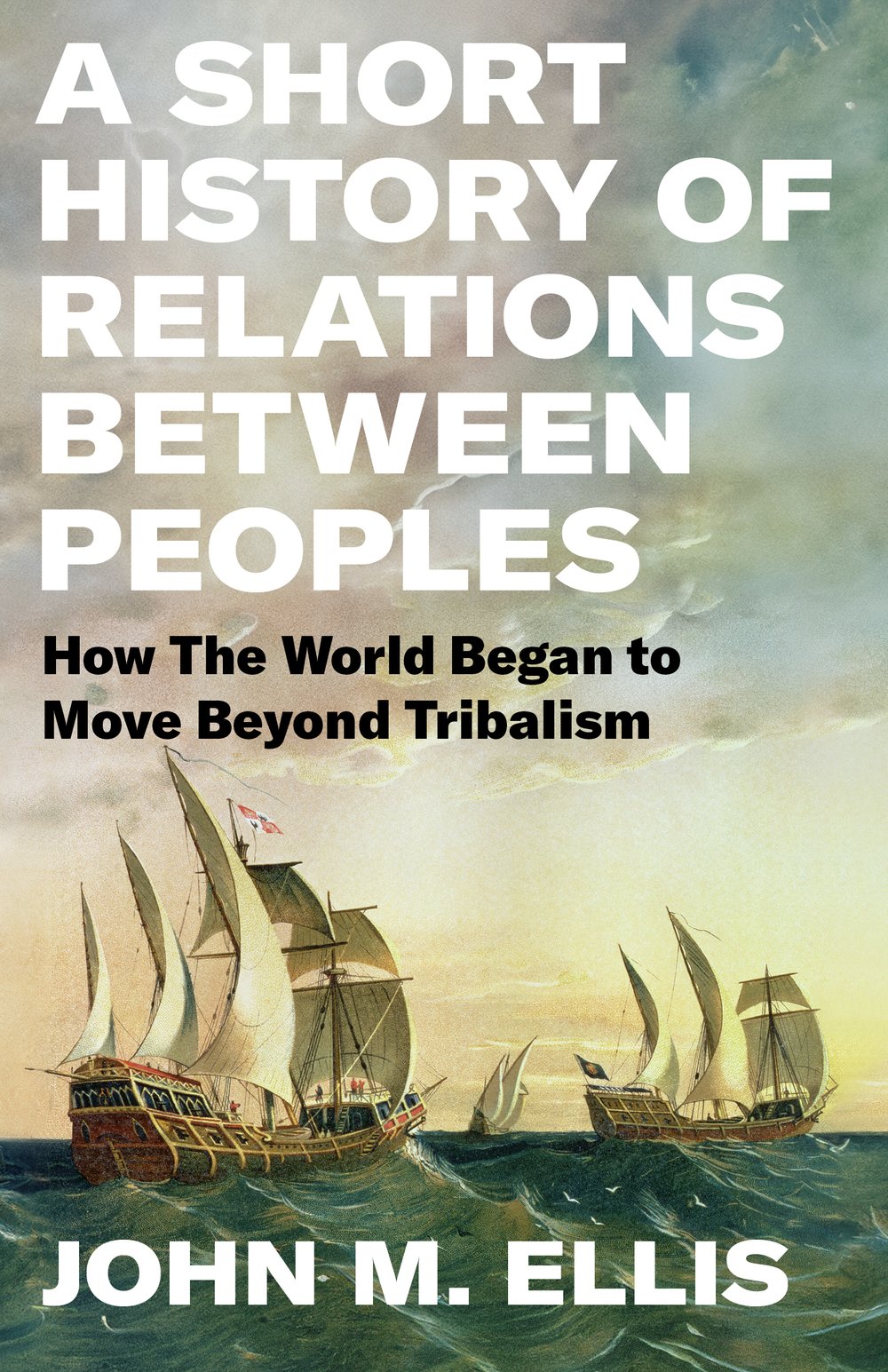A Short History of Relations Between Peoples
How the World Began to Move Beyond Tribalism

A Short History of Relations Between Peoples traces how the cultural attitudes that different peoples and nations had toward each other have undergone a profound and positive change during the last 500 years.
For most ofrecorded history, neighboring countries,tribes, and peoples everywhere in the world regarded each other with apprehension—when not outrightfear and loathing.Tribal orracial attitudeswere virtuallyuniversal,noone groupbeing much better orworse inthisrespectthanany other—andfor goodreasongiventhe conditionsoflife before the modern era. Butinthe last 500 years, relations between different peopleshave undergone a slow but profound change.
Inthisbook, JohnEllisexplainshowaconfluenceofdiscoveries,inventions,explorations,as well as social and political changesgavebirthto anewattitude,oneexpressedsuccinctlyinthe Latinphrase:gens unasumus.
This is a compellingstoryinits own right,butitis alsoa useful inoculationagainstthe destructive ideas oftoday’s race hustlers.Anaccurate grasp ofhow this crucial change happened contradicts everythingthattheywantustobelieve. Ideologiessuchas CriticalRaceTheory andDiversity, Equity,andInclusionhaveeverythingtouchingon raceandracismcompletelybackwards.
The villains oftheir ignorantversion ofhistoryare reallythe heroes. In explaining howthehistorical record makes nonsenseofCRT, Ellis’s bookamountstothe mostfundamentaland complete refutation ofthat pernicious ideology.

John M. Ellis is a distinguished professor emeritus of German literature at the University of California, Santa Cruz. He taught at universities in England, Wales, and Canada before joining UCSC in 1966, serving as dean of the Graduate Division in 1977-86. He is the author of eleven books, including Literature Lost (Yale), awarded the Peter Shaw Memorial Award by the National Association of Scholars, and most recently The Breakdown of Higher Education (Encounter Books). He founded the association of Literary Scholars from 2007-2013, continuing as chairman of its board since then. His articles on education reform have appeared in prominent national publications.
